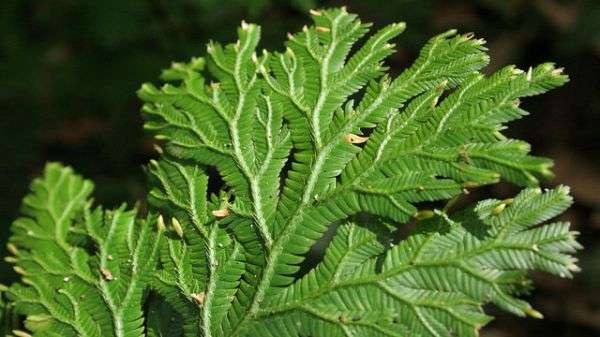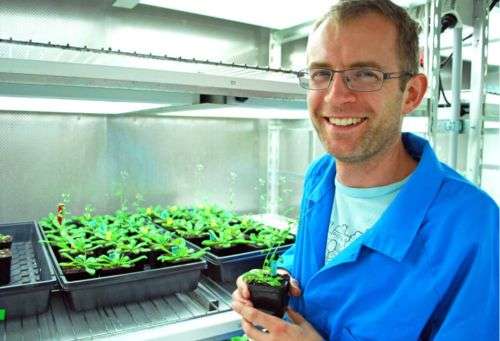Plant growth boosted by 400 million year old communication system

Local scientists have discovered an ancient protein in modern-day plants that stimulates germination and, if developed, could give farmers more control over seedling growth.
The protein, called Karrikin Insensitive2 (KAI2), was already known to detect compounds in smoke that prompt seeds to germinate after a bushfire.
Now University of Western Australia ARC Centre of Excellence in Plant Energy Biology scientist Dr Mark Waters says he has discovered that KAI2 evolved millions of years ago and that it is vital for seedlings' health.
"We started going down the family tree to find out how long ago this protein started working and it turns out it's at least 400 million years old," Dr Waters says.
"By knowing that, we know it [the protein] must be important for the growth of all kinds of plants."
Dr Waters says he made the discovery by taking the gene that expresses the KAI2 protein from an ancient species of creeping plant, called Selaginella, and splicing it into a higher (or flowering) plant, called Arabidopsis thaliana.
He found when he removed KAI2 from A. thaliana, the plant failed to grow properly and had malformed leaves.
However, when the scientists took the same gene from Selaginella and inserted it into A. thaliana, the growth function was restored but the KAI2 protein no longer sensed karrikins—the compounds in smoke that prompt germination.

"This tells us that this protein that we thought was really important for sensing karrikins does lots of other stuff in the plant as well," Dr Waters says.
"But there's been some sort of evolution that changes exactly what types of chemicals these proteins respond to."
Dr Waters says he hopes to exploit the protein and develop chemicals that can control germination, giving farmers greater power when their crops sprout.
"We know this protein regulates seed germination, and we would like to find chemicals that can both promote germination and also inhibit germination," he says.
High humidity or prolonged rainfall can cause crops, such as wheat, to sprout within the grain affecting its quality, lowering yields and resulting in huge financial losses for growers.
Dr Waters says that a chemical that can be sprayed before rainfall which inhibits germination could be a lifesaver for farmers, especially in a changing climate.
He says germination chemicals could also be used to control weed growth, allowing farmers to spray herbicide before crops are planted.
Provided by Science Network WA




















